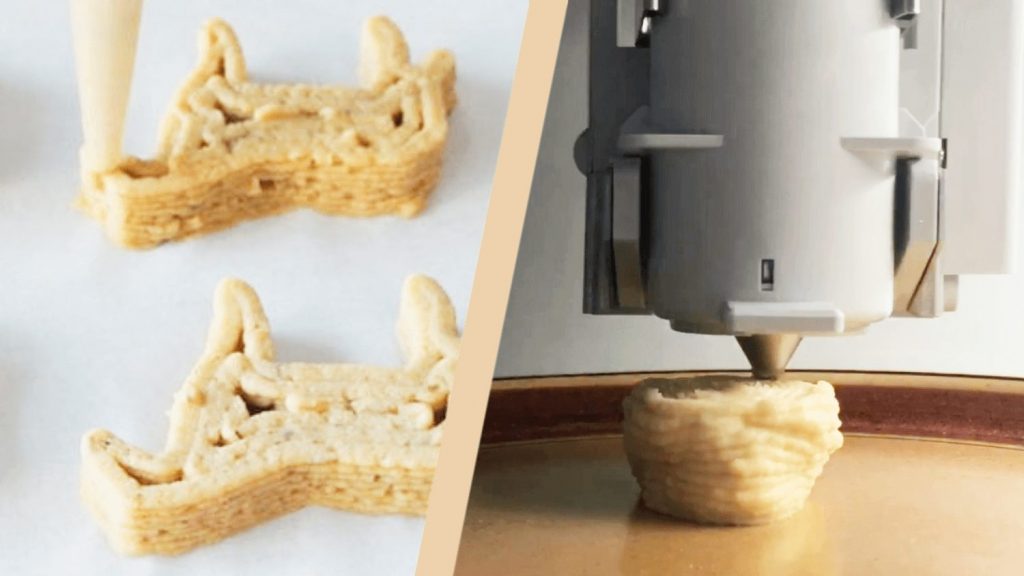It’s official, you can now 3D print your own hummus.
If that’s not enough, you could even 3D print your own hummus — or guacamole, or whatever food you fancy — into a variety of shapes, including a heart, dolphins, a crocodile, or just about any other pattern your heart desires.
3D Food Printing is a new company and distributor of the Foodini, a 3D printing kitchen appliance that helps families to have more fun with healthy foods.
In a recent Youtube video, the company shows the machine printing Sabra Dipping Company’s hummus into the shape of dolphins. The marine animal was chosen because “one of our favorite things to do on Saturdays is to head down to Dana Point and catch dolphins swimming by.”
According to Natural Machines — the original creators of the printer — the Foodini requires fresh and natural ingredients, which it then prints into fun customized shapes. It also helps to reduce food waste, as the machine will only print the amount that you need.
“Foodini makes cooking more creative, faster, and healthier,” says Natural Machines on its website. “Print your food in precise portions and shapes. Take your dishes to another level – elevate your food.” It continues, “from guacamole with secret spices to heart-shaped vanilla-mint cookies, Foodini promotes cooking with fresh ingredients for healthier, happier eating.”
3D Printed Vegan Food
Around the world, 3D printers are being used to advance the plant-based food industry. Last year, it was reported that some scientists were using food printers to create sustainable soy.
“Businesses are looking for ways to become ‘greener’ and provide renewable resources to replace the petrochemical products and therefore are turning to soybeans,” 3Dprint.com wrote last year. “The soybean is adaptable and can be used to feed humans and animals to develop products for everyday use.”
In Japan, Open Meals, a food technology firm, are creating vegan 3D printed sushi, and in Spain, startup Novameats is hoping to transform the food industry with steaks printed from seaweed, rice, and peas.
3D printers are also used to create clean meat, aka slaughter-free meat grown from the cells of an animal. In Israel, Aleph Farms is using printers to create clean meat that has the same texture and structure as traditional meat.
“Consumers — especially millennials and flexitarians — care about animal welfare and the environment,” said Didier Toubia, the co-founder and CEO of Aleph Farms, last May. “At the same time, they want to eat juicy, indulgent steak – not just ‘protein.’ Our goal is to help these consumers adhere to their personal standards while getting to enjoy safe, sustainable meat.”


